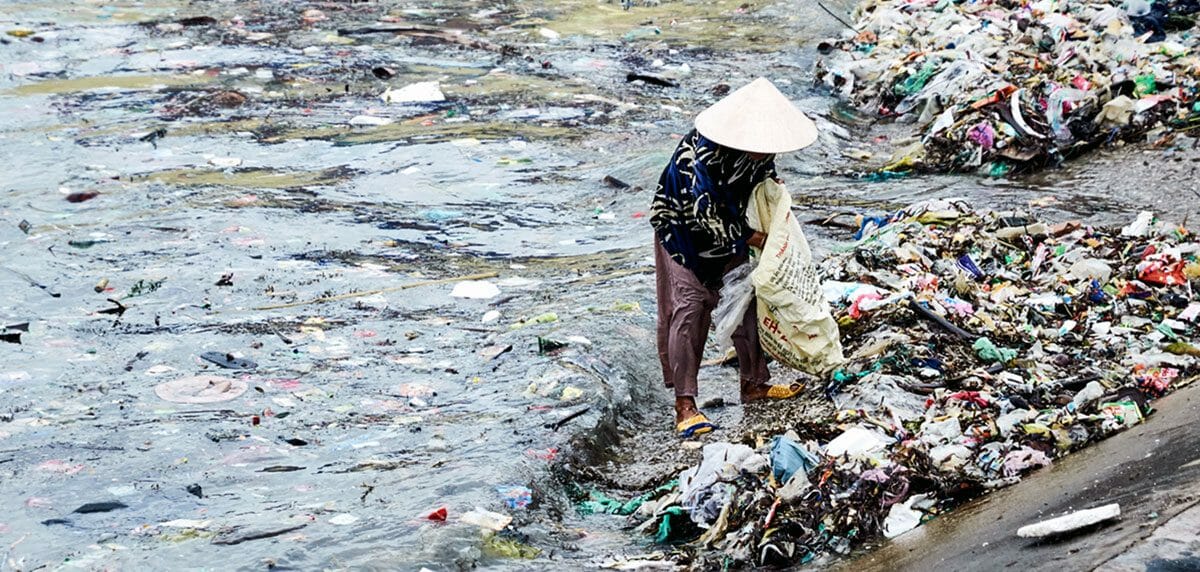
The POLYPROBLEM Report of the Röchling Foundation and Wider Sense
The Waste of Others
About the responsibility for the flood of plastic in Asia
More than half of the plastic waste in the oceans is released into the environment from five Asian countries. And this despite the fact that the emerging and developing countries use much less plastic per capita of their population than the industrialized nations. The reason for the massive emissions is the predominantly inadequate waste management systems in the Global South. The new POLYPROBLEM Report by the Röchling Foundation and Wider Sense takes a close look at the omissions and opportunities.
International comparative figures show it clearly: With increasing prosperity, the consumption of plastics is rising. However, waste management in developing regions is not growing at the same pace. If this development continues and the gap widens, the world will only be at the beginning of the plastic problem – regardless of the enormous public attention to the subject.
In their new POLYPROBLEM Report “THE WASTE OF OTHERS”, the non-profit Röchling Foundation and the consulting firm Wider Sense have comprehensively examined why it has not yet been possible to establish a nationwide waste management system as a basis for recycling and circular waste management in emerging and developing countries.
The authors analyzed international studies and spoke with experts in development cooperation. They researched aid programmes of large international organisations such as the World Bank or the United Nations and looked at the activities of companies and their networks. They have interviewed initiators of various projects from civil society and, last but not least, people affected on the ground.
“Our extensive research and analyses led to three main results,” Michael Alberg-Seberich, Managing Partner of Wider Sense, and Uwe Amrhein, Foundation Manager of the Röchling Foundation summarize.
- The principle of Extended Producer Responsibility, which among other things ensures in the countries of the EU that the fillers of packaging participate in financing the infrastructure for collection, sorting, and recycling, is not, or only partially, legally anchored in many emerging and developing countries. There is an urgent need for action here.
- The introduction of extended producer responsibility and the associated waste management systems cannot simply be exported from the industrialised countries. In India, for example, the approximately 1.5 million private waste collectors currently collect far more plastic waste than the entire public system. Added to this is the predominantly municipal responsibility with very different local conditions. Systems that combine the principle of extended producer responsibility with the informal sector must therefore be developed.
- Global support programmes, measures of international development policy, corporate commitment and projects from civil society only come together in exceptional cases. “Of course, individual projects are supported by companies and the public sector. But there is no major multilateral offensive for the rapid and systematic dissemination of good solutions,” the editors critically note.
The new POLYPROBLEM Report is intended to serve organizations, public institutions, companies and foundations that are involved in the field of plastics and the environment or are planning such an involvement.
With the POLYPROBLEM initiative, the non-profit Röchling Foundation and Wider Sense have combined various information and networking offerings that are intended to contribute to better cooperation in solving this global challenge. These include studies, webinars, workshops and excursions. All offerings are accessible via the website www.polyproblem.org.

